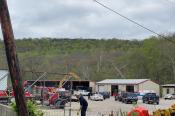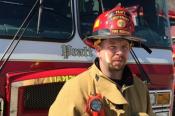Complete West Virginia accident reports and news.
West Virginia: The Mountain State, known for the Appalachian Mountains, and its history of logging and coal mining
West Virginia is located in the tree-covered Appalachian Mountains. Harpers Ferry, where the Shenandoah River meets the Potomac River, is the site of a famous Civil War-era raid. Surrounded by a national historical park, the town looks as it did in the 19th century, with many of the buildings open to the public as living-history museums. The state is noted for its mountains and rolling hills, its historically significant logging and coal mining industries, and its political and labor history. It is one of the most densely karstic areas in the world, making it a choice area for recreational caving and scientific research.
To accommodate the residents and visitors to West Virginia, the state has a range of transportations systems in place
Highways form the backbone of transportation systems in West Virginia, with over 37,300 miles of public roads in the state. Airports, railroads, and rivers complete the commercial transportation modes for West Virginia. Commercial air travel is facilitated by airports in Charleston, Huntington, Morgantown, Beckley, Lewisburg, Clarksburg, and Parkersburg. All but Charleston and Huntington are subsidized by the US Department of Transportation's Essential Air Service program. The cities of Charleston, Huntington, Beckley, Wheeling, Morgantown, Clarksburg, Parkersburg and Fairmont have bus-based public transit systems, and the Huntington and Charleston systems jointly operate a twice per weekday interconnecting service.
To support residents and visitors alike, the State of West Virginia provides a high-quality site with road conditions, maps, and traffic cameras.
The climate and landscape of West Virginia affect drivers in the region
The climate of West Virginia is generally a humid subtropical climate with warm to hot, humid summers and chilly winters, increasing in severity with elevation. Some southern highland areas also have a mountain temperate climate where winter temperatures are more moderate and summer temperatures are somewhat cooler. However, the weather is subject in all parts of the state to change. Average January temperatures range from around 26 °F near the Cheat River to 41 °F along sections of the border with Kentucky. July averages range from 67 °F along the North Branch Potomac River to 76 °F in the western part of the state.
In Accident Data Center, find information on recent West Virginia accidents here:
Bluefield, Beckley, and Oak Hill Accidents
Charleston and Huntington Accidents
Clarksburg and Weston Accidents
When someone is injured in an accident in West Virginia, it is important to gather information about what happens next.
Being injured in a serious accident is always a shocking and scary experience, and dealing with the aftermath is exhausting and stressful. Accident victims are forced to deal with hospitalization, medical treatments, missed work, and lost income, often while trying to manage pain and disability from their injuries. And then the insurance adjusters start circling.
What to do after a serious injury accident in West Virginia
When someone has been injured or killed in a motor-vehicle collision in West Virginia, the accident victim and their family members are left with medical bills, lost income, and other costs. It is important to get legal assistance to help the accident victim recover, or when the accident is fatal, to help the family members get fully compensated for their losses. Learn more about how an experienced West Virginia personal injury attorney will help injured victims and families.
Accident reports by area
Most recent accident reports
Bluefield-Beckley-Oak Hill, WV
Bluefield-Beckley-Oak Hill, WV
Charleston-Huntington, WV
Bluefield-Beckley-Oak Hill, WV
Bluefield-Beckley-Oak Hill, WV
Bluefield-Beckley-Oak Hill, WV
Washington, DC
Wheeling, WV-Steubenville, OH
Bluefield-Beckley-Oak Hill, WV




